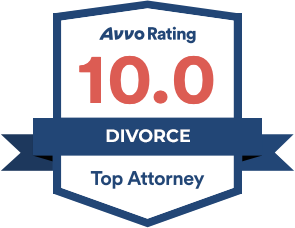
Charlotte Child Custody Lawyer
Experienced Custody Attorney Serving Mecklenberg County, NC
How to Get Custody of a Child in NC
Just as your child is unique, each case is unique. The Charlotte courts will look at all factors to decide what is in the best interests of the children. It is the legal determination, either by agreement of the parents or by order of the court, for where and how minor children will be raised. If the parties are not able to reach a settlement, the issue of child custody will be heard by one of our Family Court Judges, who will determine and decide child custody in Charlotte.
To that end, almost any topic can be relevant to determine child custody, including:
- All information about both parents and their homes
- Work schedules and availability to care for children
- The historical caregiving by each parent
- Both parents and the child’s medical issues
- Any other issue the Court believes is necessary to best promote the interests and welfare of the child
Parents often state that determining child custody is the most stressful part of family law separation. Here at Miller Cushing Holladay, our legal team of Charlotte child custody lawyers knows what can be asked when child custody is decided. We want to listen to your situation and assist you in deciding the best course of action for a successful outcome in the best interests of you and your child.
Make sure you have an experienced family law attorney backing you during child custody proceedings. Call 980-321-5590 or contact us online today for a private consultation with our Charlotte child custody lawyers serving Mecklenburg County.
Navigating Child Custody Laws in North Carolina
When it comes to child custody, it’s important to have a clear understanding of the laws and regulations in North Carolina. Our experienced family law attorneys at Miller Cushing Holladay PLLC can guide you through the complexities of child custody proceedings and provide you with the legal support you need.
Some key points to consider when navigating child custody laws in North Carolina include:
- The different types of child custody arrangements recognized by the state
- Understanding visitation rights and schedules in child custody cases
- Emergency child custody situations and the legal options available
- The process for modifying child custody arrangements in North Carolina
- NC custody laws and considerations for both fathers and mothers
- Factors that may deem a parent unfit in the eyes of the court
- The age at which a child in North Carolina can express their preference for living arrangements
For personalized legal guidance tailored to your specific child custody situation, contact our firm today to schedule a private consultation with our Charlotte child custody lawyers serving Mecklenburg County.
Types of Child Custody in North Carolina
In a North Carolina child custody case, we generally refer to two different types of child custody:
- Legal Child Custody – Legal child custody is the decision-making power of each parent to decide long-term issues for a child such as where the child goes to school, what doctors they see and what medical treatment they may receive, what religion they will be taught, and any other matters of lasting significance.
- Physical Child Custody – Physical child custody is just what it sounds like–where the child is physically located each night. Most child custody arrangements are considered joint custody, even if one parent has substantially more time with a child than the other. Several years ago, the North Carolina court began referring to most custody arrangements as “joint custody” and instead identifying a “primary” custodial parent and a “secondary” custodial parent.
Understanding Legal and Physical Custody
When it comes to child custody, it’s important to understand the different types of custody arrangements that can be made. In North Carolina, there are two main types of custody: physical custody and legal custody.
Physical custody refers to where the child resides and spends their time. It can be awarded solely to one parent (sole physical custody) or shared between both parents (joint physical custody). Legal custody, on the other hand, refers to the right and responsibility to make important decisions regarding the child’s upbringing, such as education, healthcare, and religion. It can also be awarded solely to one parent (sole legal custody) or shared between both parents (joint legal custody).
It’s important to note that custody arrangements can be customized to fit the unique needs and circumstances of each family. Our experienced child custody attorneys at Miller Cushing Holladay PLLC can help you navigate the complexities of child custody laws in North Carolina and work towards achieving the best possible outcome for you and your child.
Visitation Rights: An Essential Aspect of Child Custody
When going through a child custody case, it’s important to understand the concept of visitation rights. Visitation rights refer to the non-custodial parent’s right to spend time with their child. These rights are typically granted by the court and can vary depending on the specific circumstances of the case.
Here are some key points to know about visitation rights:
- Scheduled visitation: In most cases, visitation rights are scheduled according to a specific visitation schedule. This schedule outlines when the non-custodial parent can spend time with the child, including weekends, holidays, and vacations.
- Supervised visitation: In certain situations, the court may order supervised visitation. This means that the non-custodial parent can only spend time with the child under the supervision of a designated third party, such as a family member or a professional supervisor.
- Modification of visitation rights: Visitation rights can be modified if there is a significant change in circumstances, such as a relocation or a change in the child’s best interests. It’s important to work with an experienced child custody attorney to navigate the process of modifying visitation rights.
- Enforcement of visitation rights: If the custodial parent is not complying with the visitation schedule, the non-custodial parent can seek enforcement through the court. This may involve filing a motion for contempt or requesting a modification of the custody order.
Emergency Child Custody in Charlotte
In certain cases, parents may seek an expedited determination of child custody. When there is a substantial risk of bodily harm or sexual abuse to a child or substantial risk a child will be abducted or removed from North Carolina to evade the Court’s jurisdiction, a parent may seek emergency child custody. Emergency child custody is awarded only in rare situations in which there is concrete danger to the child.
Where there is not an emergency but an expedited child custody decision is warranted, parents may seek a temporary parenting arrangement hearing. In situations of parental relocation, repeated “snatching” of a child, or drug or alcohol abuse issues by a parent, the Court may conduct a brief hearing to enter a temporary child custody order.
When Can I Modify Child Custody?
Under North Carolina law, the Court has jurisdiction over all minor children until they reach age 18. Because the Court must act in the “best interests” of the minor child, the Court always has the ability to modify child custody. Often, custody orders are labeled “permanent”, but the Court never loses the power to change that order as long as your child is still a minor.
To modify child custody, the Court must find there has been a substantial change in circumstances affecting the minor child since the entry of the prior court order. Some examples of a substantial change are changes in a parent’s work schedule or living arrangement, interference by one parent with the visitation schedule, or changes in your child’s educational or medical needs.
NC Custody Laws for Fathers
Does NC Favor Mothers in Custody Cases?
No, North Carolina has abolished any presumption over the mother or father. Instead, remember that the courts in NC must use the child’s best interest in determining custody. If neither parent is deemed “unfit” for custody, then the courts will not automatically favor one parent over the other due to gender.
If the father and mother are not married, then the father’s paternity will need to be established. This can be done through an Affidavit of Parentage form that both parents sign, or legal action can be taken to establish paternity with genetic testing.
What Makes a Parent Unfit in NC?
A legal definition of an unfit parent in NC is when the parent, through their behavior, fails to provide proper guidance, care, or support for their child. In addition, if there are abuse, neglect, or substance abuse issues, that parent will be considered unfit.
What Age Can a Child in NC Decide Which Parent to Live With?
There is no age for a child to decide which parent to live with in NC. But unfortunately, divorce requires many determinations, and none is more important than child custody issues in NC.
Navigating Child Custody Agreements
When going through a divorce or separation, one of the most challenging aspects can be determining child custody arrangements. Our experienced Charlotte child custody lawyers at Miller Cushing Holladay PLLC understand the complexities of family law and can help you navigate this emotional process.
Our team can assist you with:
- Creating a comprehensive parenting plan
- Negotiating custody agreements with your co-parent
- Mediating disputes and finding amicable solutions
- Representing you in court for custody hearings
With our guidance and expertise, you can ensure that your child’s best interests are prioritized while protecting your parental rights. today to schedule a consultation and learn how we can help you with your child custody case.
Making a Parenting Plan in NC
Creating a parenting plan in North Carolina is an essential step for separated or divorced parents to outline how they will share responsibilities and care for their children. By crafting a parenting plan carefully, parents can reduce conflict between them and promote stability for their children.
A parenting plan typically includes:
- Custody Arrangements: Specifies physical custody (where the child will live) and legal custody (decision-making authority).
- Visitation Schedules: The schedule for the child’s time with each parent, including holidays, school breaks, and weekends.
- Communication Protocols: Outlines how parents will communicate regarding the child’s needs and schedules.
- Decision-Making Guidelines: Outlines how major educational, health care, and extracurricular decisions will be made.
- Dispute Resolution: Provides methods for resolving disagreements, such as mediation.
In North Carolina, courts prioritize the child’s best interests when reviewing parenting plans. A comprehensive and cooperative plan demonstrates the parents’ commitment to their child’s well-being.
Working with an experienced Charlotte child custody attorney can make the process smoother. We can help you draft a plan that meets your child’s needs while protecting your parental rights. With our guidance, you can create a balanced parenting plan that fosters a supportive environment for your child.
Trust Our Charlotte Child Custody Lawyers to Fight For You
At Miller Cushing Holladay PLLC, our experienced child custody attorneys understand the complexities of visitation rights and can provide guidance and representation throughout the process. Contact us today to schedule a consultation and learn more about your rights and options in child custody cases.
If you’re looking for more help on a future or impending child custody case, feel free to contact our Charlotte child custody lawyers serving Mecklenburg County online today or call 980-321-5590.
Helpful Resources
Related Reading

-
“Bethany was encouraging of questions and seems very knowledgeable”
– Jeremy Q. -
“Chris Miller and Brett Holladay were remarkable in their approach, plan and execution in my divorce case”
– Anupam P -
“I appreciate all he did to help”
– Elka J. -
“They were responsive to all of our concerns and really seemed to care about getting us the outcome that we wanted”
– Miranda M. -
“The ethics, personal client attention, and diligent client representation are well known within the local legal community.”
– Jenny H.
Contact Our Firm
Call 980-321-5590 or Fill Out this Form to Begin Your Case








